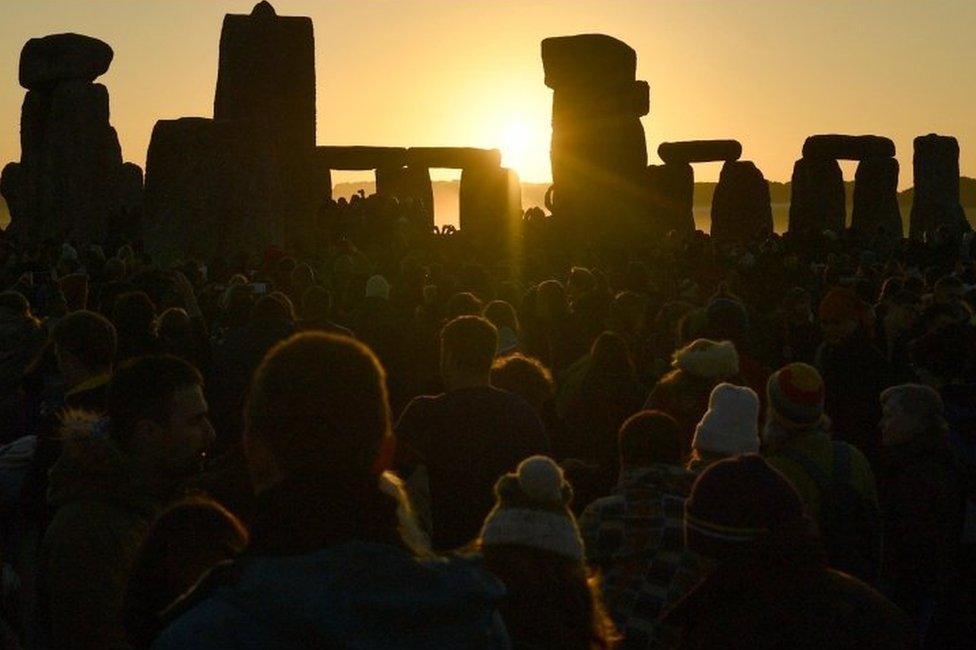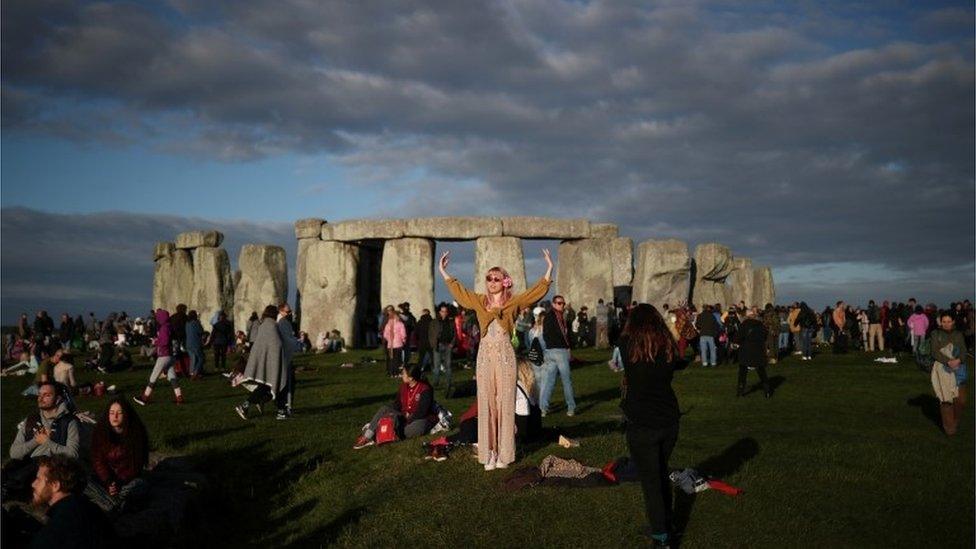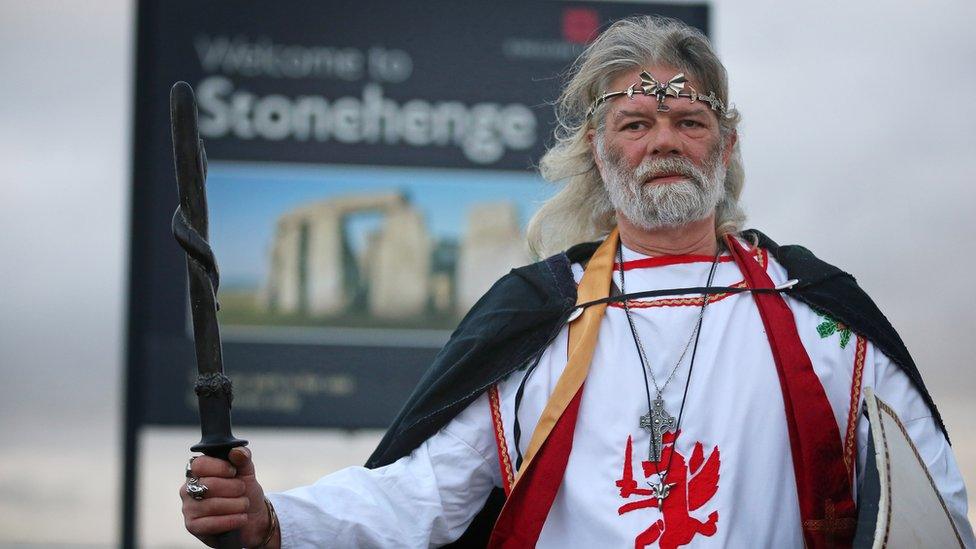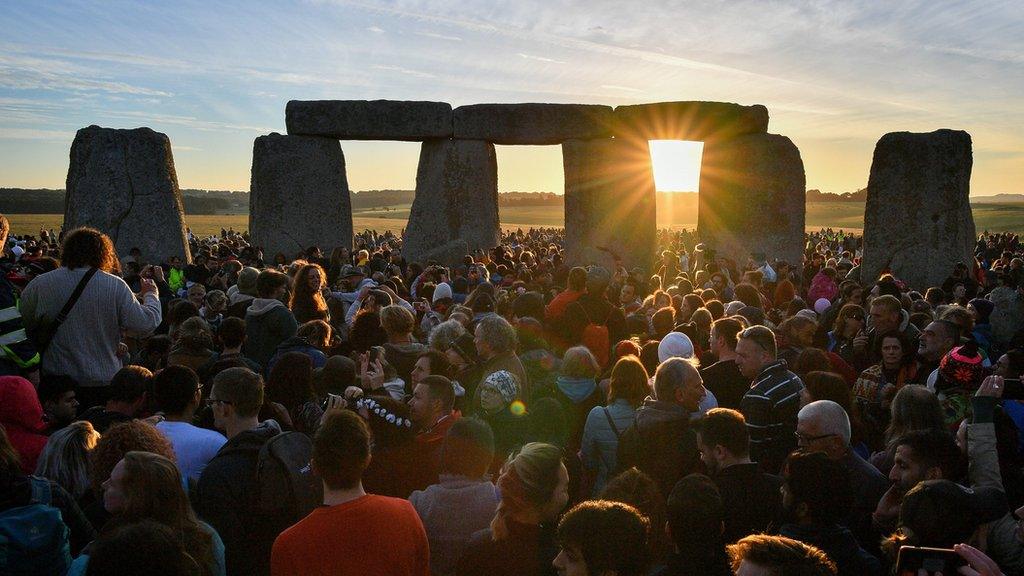Coronavirus: Stonehenge summer solstice gathering cancelled
- Published

The summer solstice is one of the rare occasions that English Heritage normally opens up the stones for public access
This year's summer solstice celebrations at Stonehenge have been cancelled because of the ban on mass gatherings prompted by the coronavirus.
Traditionally about 10,000 people have gathered at the Neolithic monument in Wiltshire, on or around 21 June, to mark midsummer.
English Heritage said it was cancelling the event "for the safety and wellbeing of attendees, volunteers and staff".
Senior druid King Arthur Pendragon said it was disappointing but unsurprising.
The sunrise will instead be live-streamed on English Heritage's social media.

People have been urged to watch this year's sun rise on social media instead
Stonehenge director Nichola Tasker said: "We have consulted widely on whether we could have proceeded safely and we would have dearly liked to host the event as per usual, but sadly in the end, we feel we have no choice but to cancel.
"We hope that our live stream offers an alternative opportunity for people near and far to connect with this spiritual place at such a special time of year and we look forward to welcoming everyone back next year."
Ms Tasker urged people not to travel to the monument for the solstice but to watch it online instead.
"We know how strong the draw to come is for some people," she said. "But I would take this opportunity to say please do not travel to Stonehenge this summer solstice."

Senior Druid King Arthur Pendragon said pilgrims came from all over the world to celebrate the solstice
King Arthur Pendragon said it was the second event to be cancelled after the Spring equinox at the end of March.
"It's a major event they've cancelled - pilgrims come from all around the world," he said.
"But it was understandable under the present circumstances.
"The Solstice is to us on a par to what Christmas is to Christians, and Stonehenge is to us like a cathedral...to us it's a place of spirituality."
The summer solstice is one of the rare occasions that English Heritage normally opens up the stones for public access.
On the summer solstice, the sun rises behind the Heel Stone, the ancient entrance to the Stone Circle, and rays of sunlight are channelled into the centre of the monument.
English Heritage said it had consulted with the emergency services and the druid and pagan community, among others, before making the decision.
- Published21 June 2019

- Published21 June 2018
